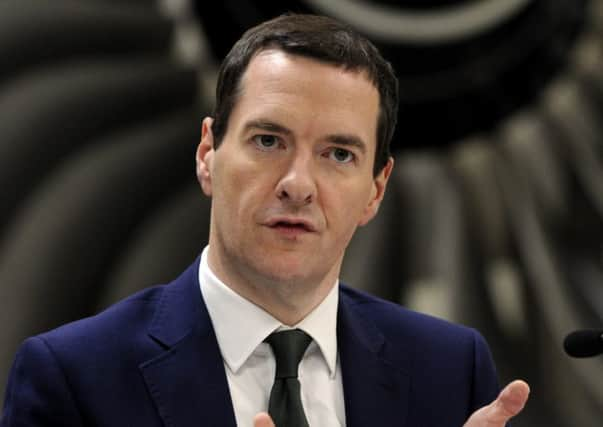Germany urges UK to stay in EU


Using the German phrase, which means communal relations, Mr Osborne celebrated the great friendship that exists between Britain and Germany and commended both nation’s financial contributions to the union.
Ms Merkel said she understood Britain’s economic concerns, but she wouldn’t naturally agree with all of Britain’s demands as Mr Osborne attempts to crystalise what kind of question they indend on putting to the electorate during the EU referendum in 2017.
Advertisement
Hide AdAdvertisement
Hide AdShe said: “We can say that where there are justified concerns — whether competitiveness or better functioning of the EU, the British concerns are our concerns.”
Setting out lose terms for how Britain might change its membership, he said he would support the European Single Market, however referenced the Greek financial crash, and said how ‘we must never let taxpayers in countries that are not in the euro bear the cost for supporting countries in the Eurozone’.
However his frank words are a worry for those in Labour who fear EU renegotiations are an attempt only to reassert British power within an organisation where it has waning influence.
Holly Lynch who worked in an export business and for MEP Linda McAvan before winning the Halifax seat for Labour at the General Election in May is one of a number of Yorkshire MPS backing the party’s ‘in campaign’, led by West Hull MP Alan Johnson.
Advertisement
Hide AdAdvertisement
Hide AdShe said: “The crux of it is that nobody really minded when we were leading the way within the EU. We were more influential than we are now. We were calling some of the shots. Our economy was stronger and we were taking the lead in the commission’s thinking.
“Now we have taken a step back which is down to David Cameron and George Osborne not wanting to be involved. We find that we are falling further and further away from the core of the negotiation table.”
“When they felt like they were telling everybody else what to do in the EU, that was okay.”
She said people do want to see the UK at the heart of decision making but Mr Osborne’s claim that Britain doesn’t want an ever closer political union was unclear.
Advertisement
Hide AdAdvertisement
Hide AdShe said: “When he says things like that people want more clarity. What does he mean by political integration and what legislation is he talking about?”
Most concerning for potential renegotiation is whether the Government would ask to opt out of the EU working time directive, which many eurosceptics see as burdensome red tape. The directive includes rules on how long people can work before having a break.
Mrs Lynch said: “When people talk of the EU burden and red tape on businesses, they’re referring to the working time directive.
“We are really worried that when the Government says they want to alleviate the pressure on small businesses, it means they want to get rid of the directive which means people will find it much toughter in the work place,
Advertisement
Hide AdAdvertisement
Hide Ad“It’s a real worry for us that even if we get renegotiation it won’t be in the interests of the British people.”
George Osborne said during his speech to the German version of the CBI in Berlin that he wants Britain to remain in a reformed EU.